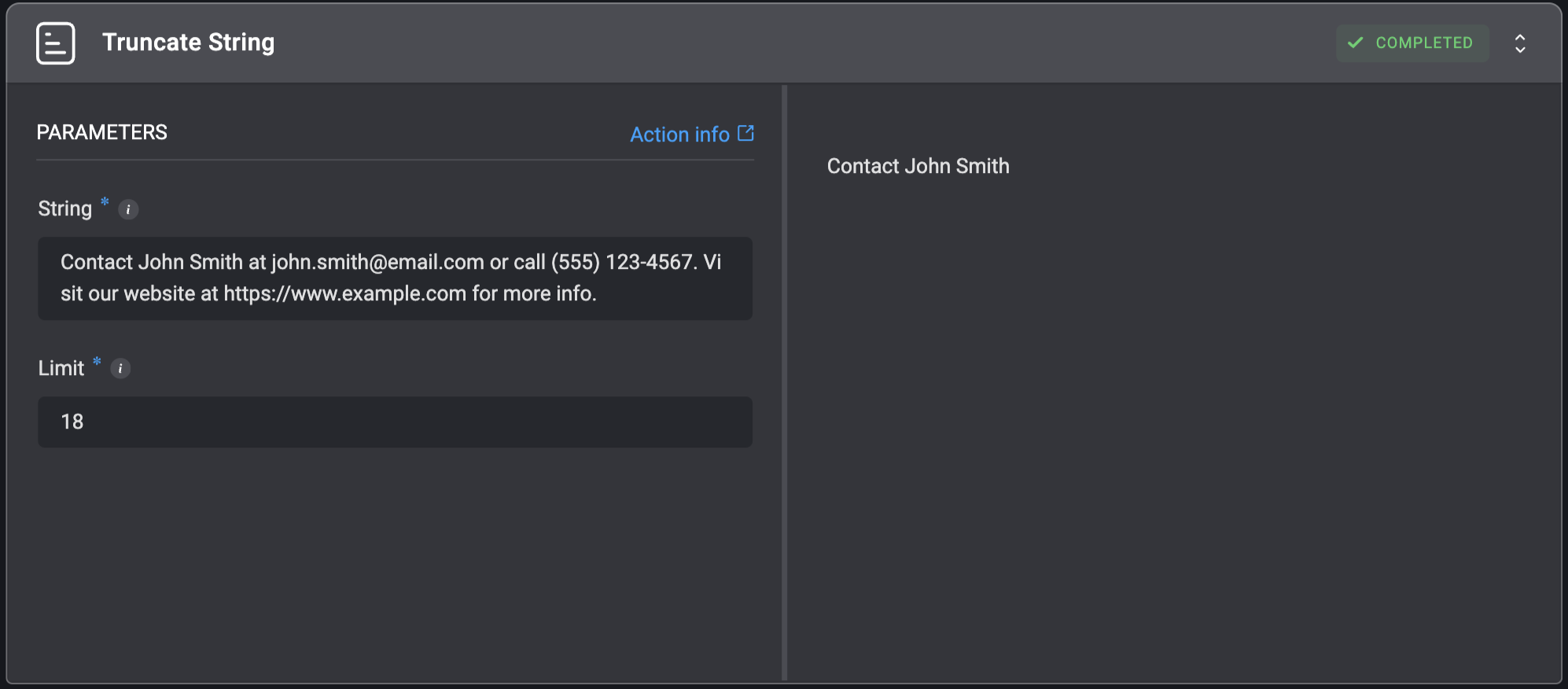Byte Truncate String
Truncate a string to a specified number of bytes while preserving UTF-8 character boundaries.| Parameter | Description |
|---|---|
| String | The input string to truncate. Can be provided with or without quotes. |
| Max Bytes | The maximum number of bytes for the truncated string. Examples: • 10 - 10 bytes• 10000 - 10 kb• 10000000 - 10 mb |
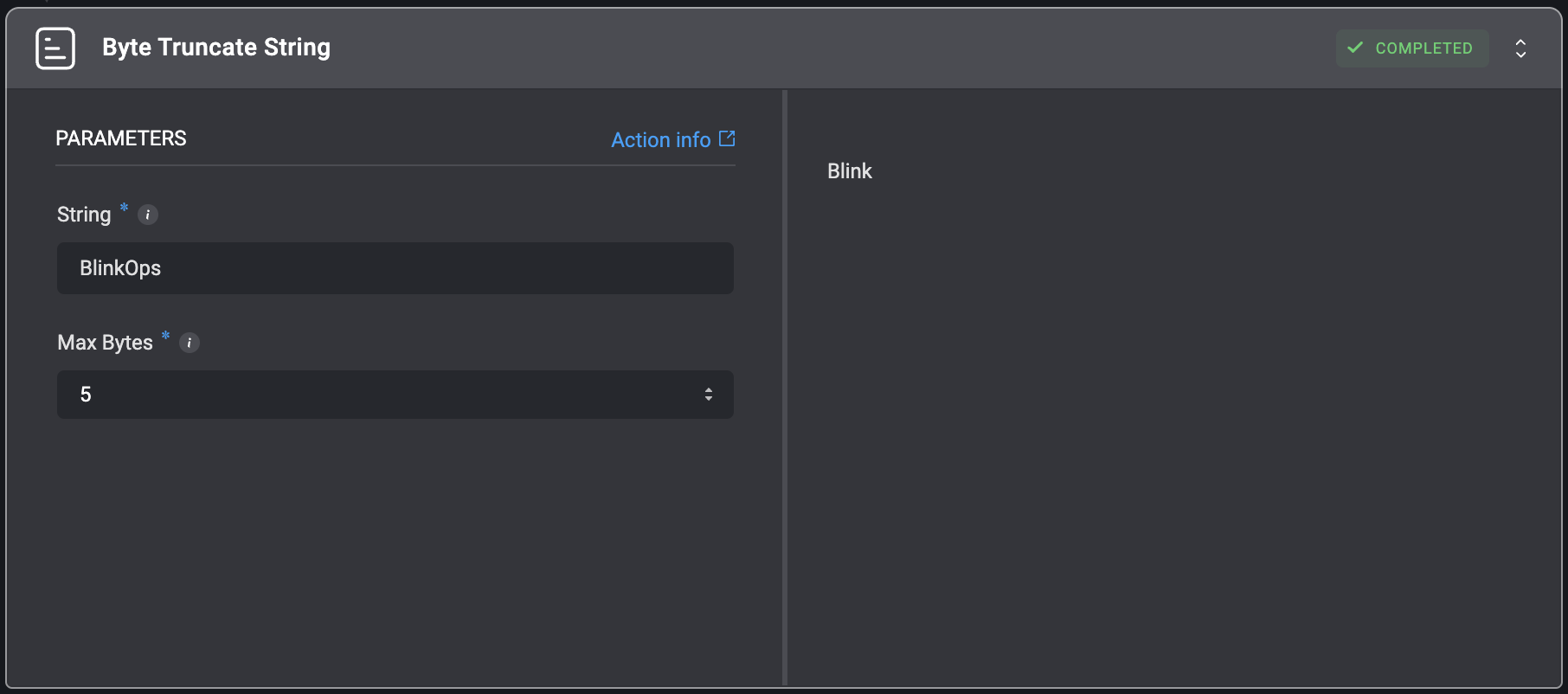
Convert To Lower Case
Converts a string to lower case.| Parameter | Description |
|---|---|
| String | The string which will be converted to lower case. For example: For the string - Hello World, the returned string will be: hello world |
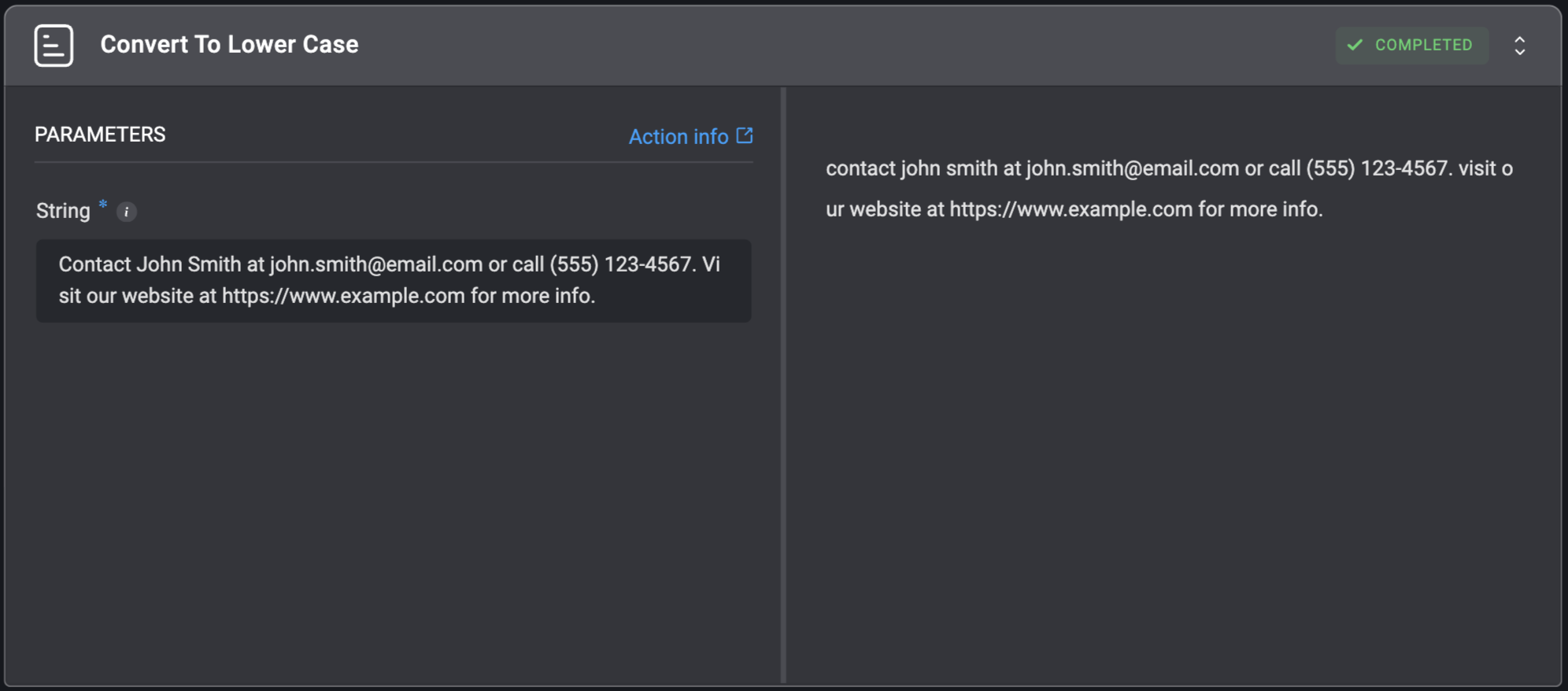
Convert To Upper Case
Converts a string to upper case.| Parameter | Description |
|---|---|
| String | The string which will be converted to upper case. For example: For the string - Hello World, the returned string will be: HELLO WORLD |
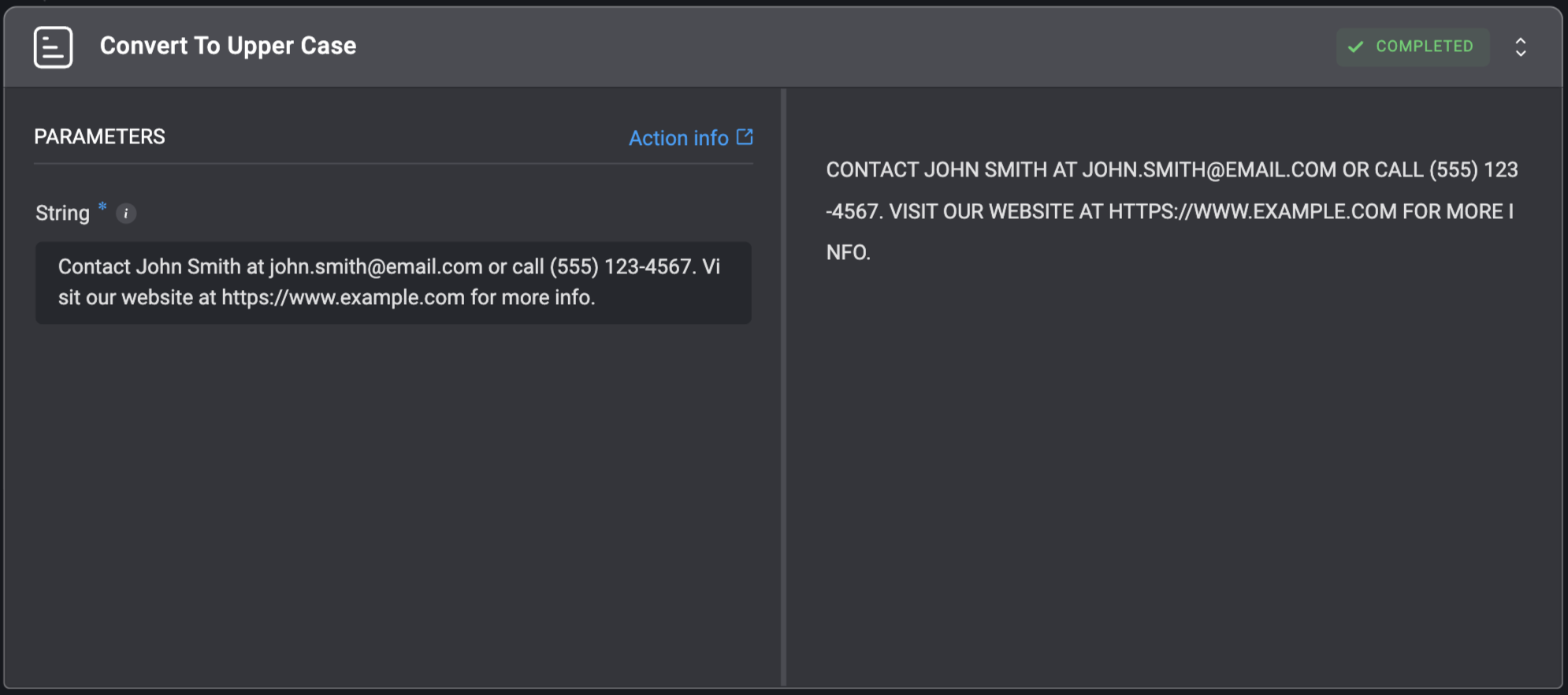
Find String
Returns the index of the first occurrence of a substring within the given string. The action returns -1 if the value is not found.| Parameter | Description |
|---|---|
| String | The original string where the Value will be searched. |
| Substring | The substring to be find within the original String. |
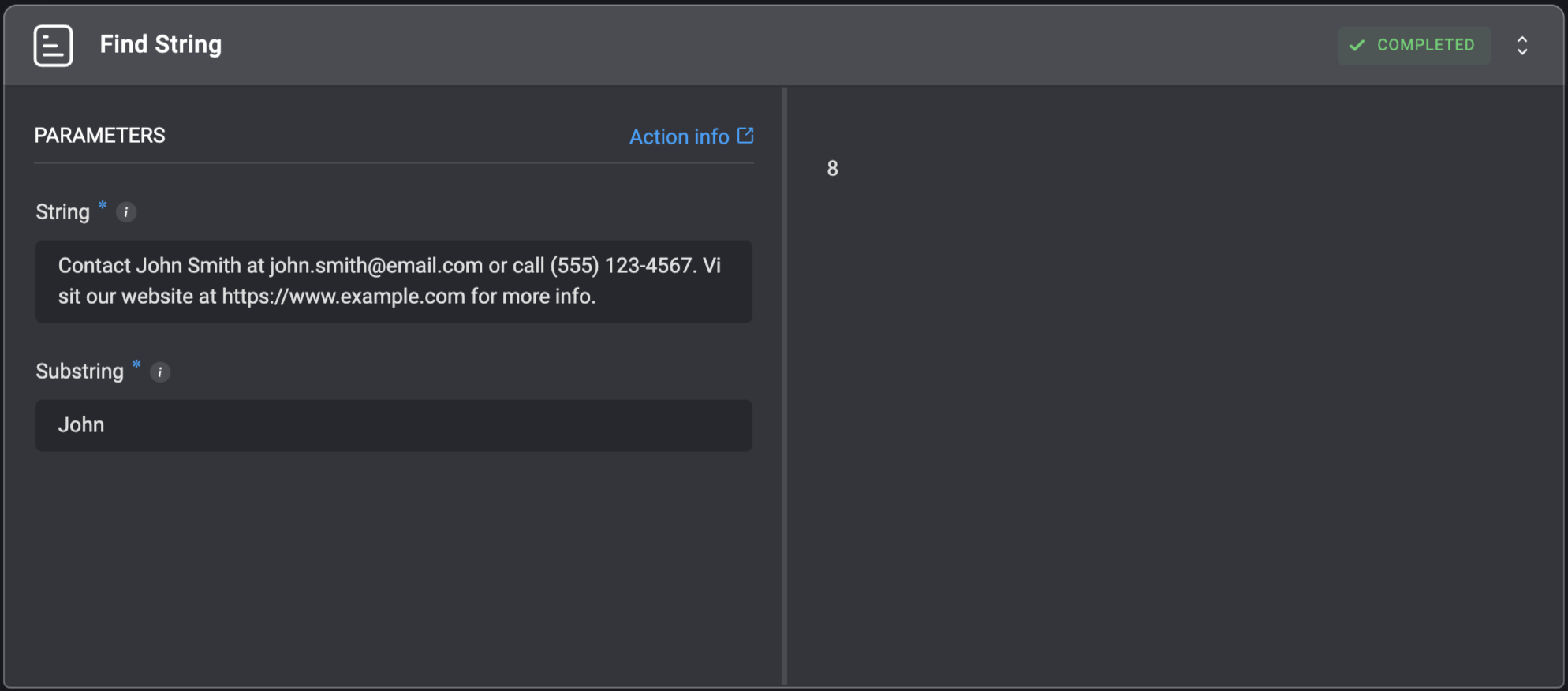
Generate Random String
Generates a random string of specified length with the given character sets.| Parameter | Description |
|---|---|
| String Length | The length of the generated string, default 10. |
| Include Special Chars | [!-*] character set - !@#$%&*. |
| Include Uppercase Chars | [A-Z] character set - ABCDEFGHIJKLMNOPQRSTUVWXYZ. |
| Include Digit Chars | [0-9] character set - 0123456789. |
| Custom Characters | ’Characters that will be appended to character pool. For example: Bl1#K@p$.‘ |
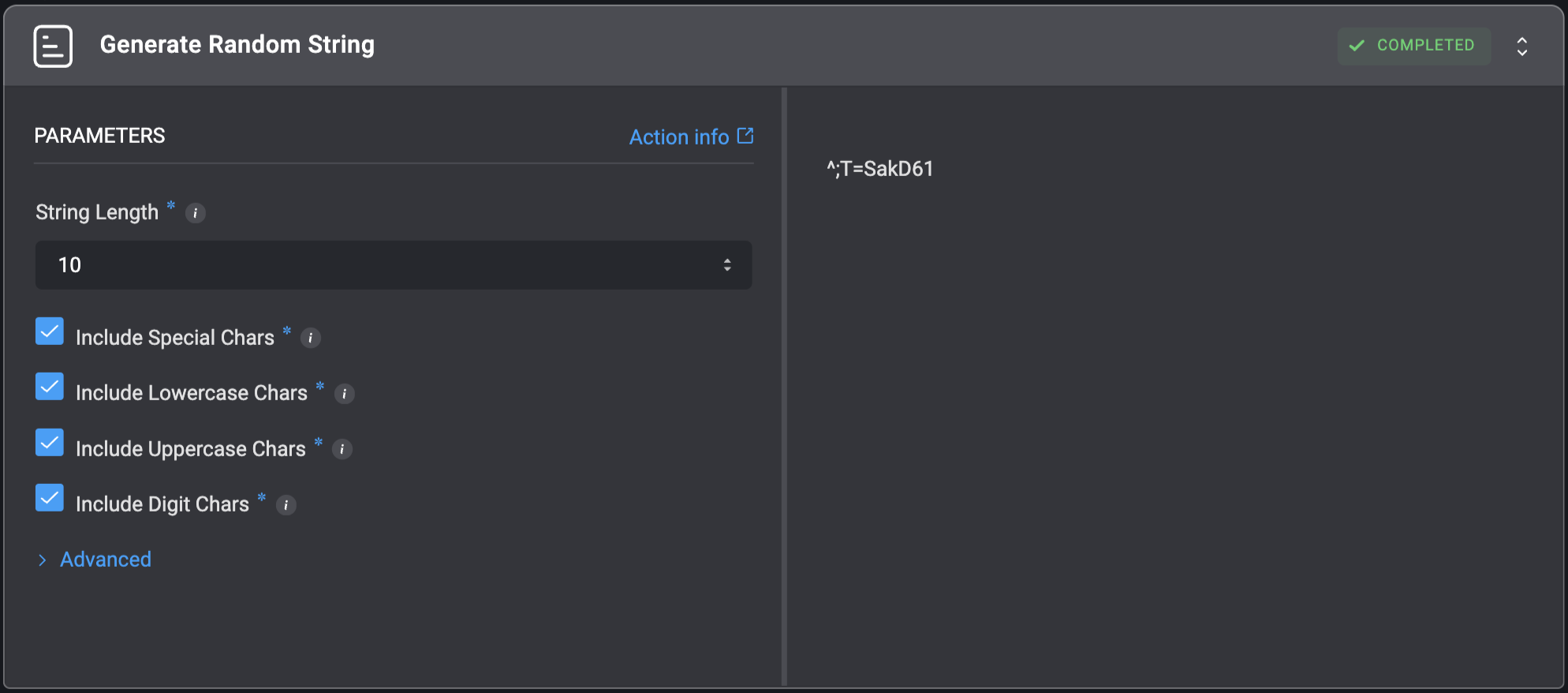
Get String Length
Get length of a string.| Parameter | Description |
|---|---|
| String | The string whose length will be returned. For example: For the string - Hello World, the returned value will be: 11 |
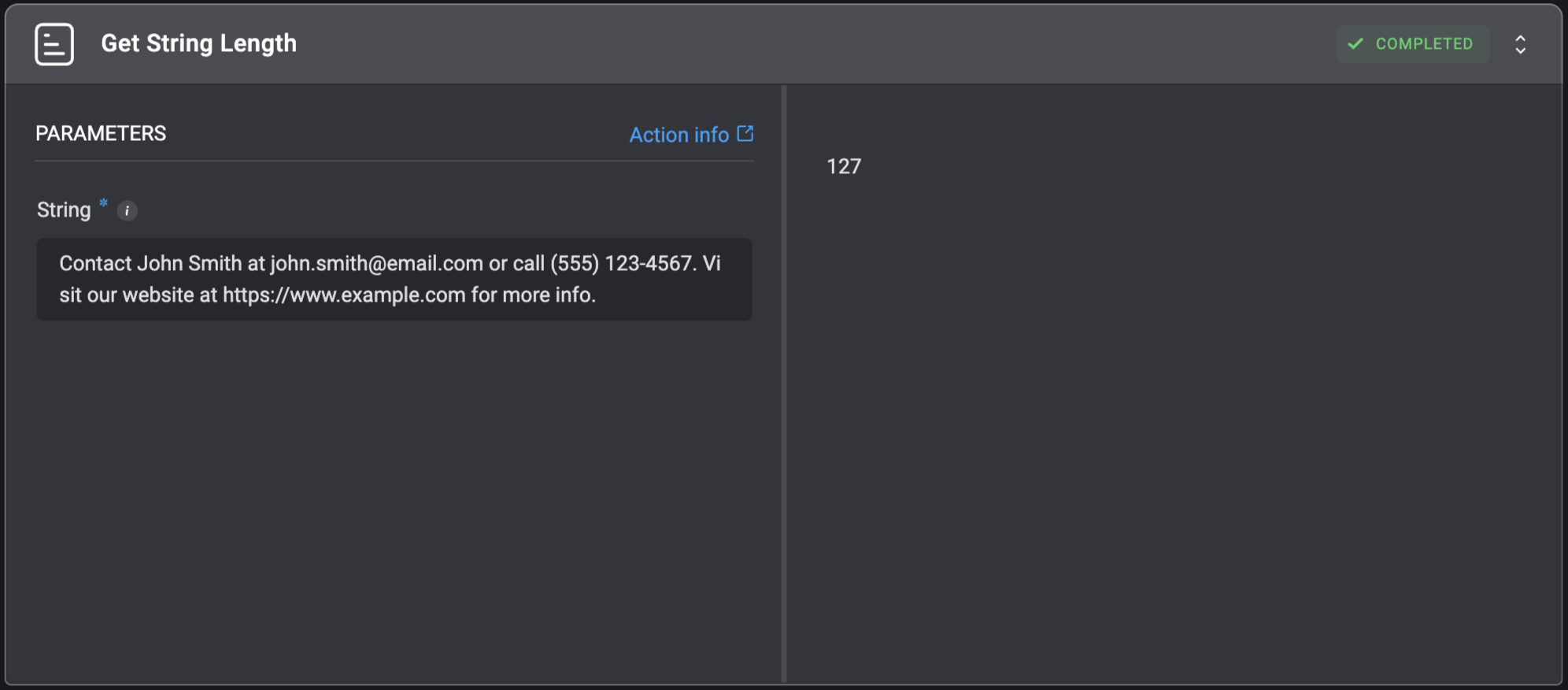
Join String
Concatenate any number of strings into a single string using an optional separator. Equivalent to Python’s join() method.| Parameter | Description |
|---|---|
| String List | The list of strings that needs to be concatenated. Also, it could be a single string like "blink". In this case, each character will act as a ‘substring’. For example: The input string - "blink" (with quotes) will act the same as the following input: ["b", "l", "i", "n", "k"] |
| Separator | The string that will be inserted in between each one of the ‘Strings’. For example: For the string list - ["I", "Love", "Blink"] and the separator - #, the returned string will be: I#Love#Blink |
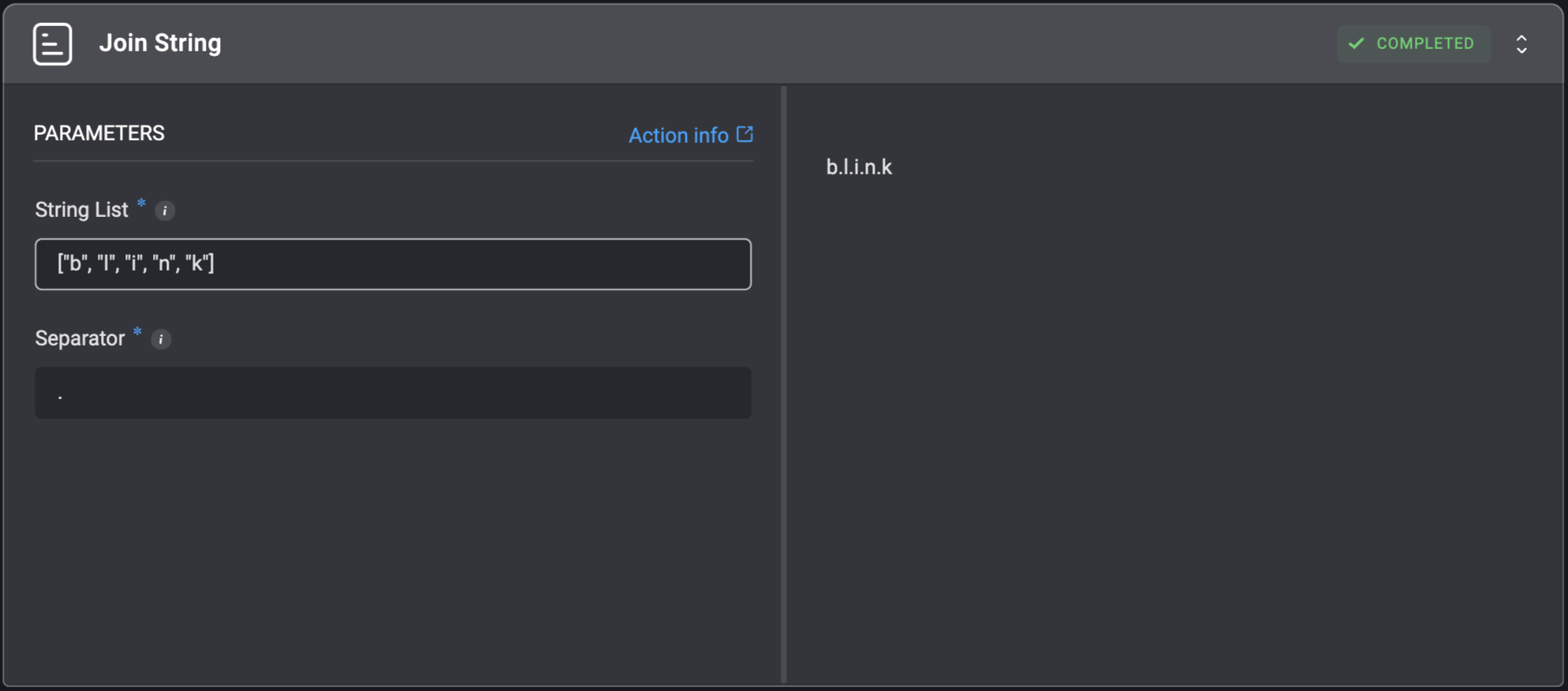
Replace String
Replaces a given substring with another string.| Parameter | Description |
|---|---|
| String | The original string where replacements will be made. |
| Old Substring | The substring to be find within the original String parameter. |
| New Substring | The replacement substring. |
| Count | The maximum number of replacements to perform. If empty, replaces all occurrences. |
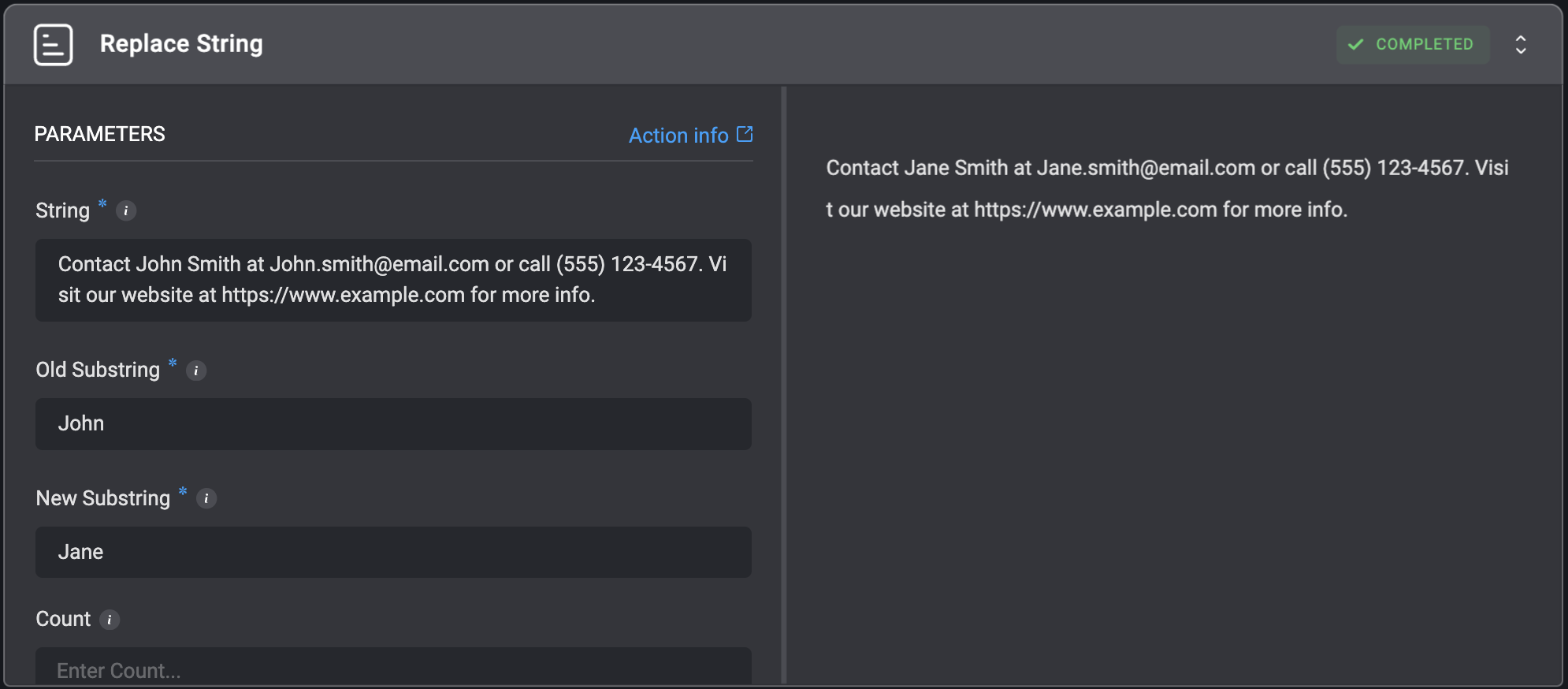
Split String
Splits a given string according to the specified delimiter and returns a list of substrings.| Parameter | Description |
|---|---|
| String | The string that needs to be split. |
| Delimiter | The delimiter based on which the string will be split. For example: For the string - Hello there, this is Blink's example! and the delimiter - ,, the returned list looks like the following: ["Hello there", " this is Blink's example!"] |
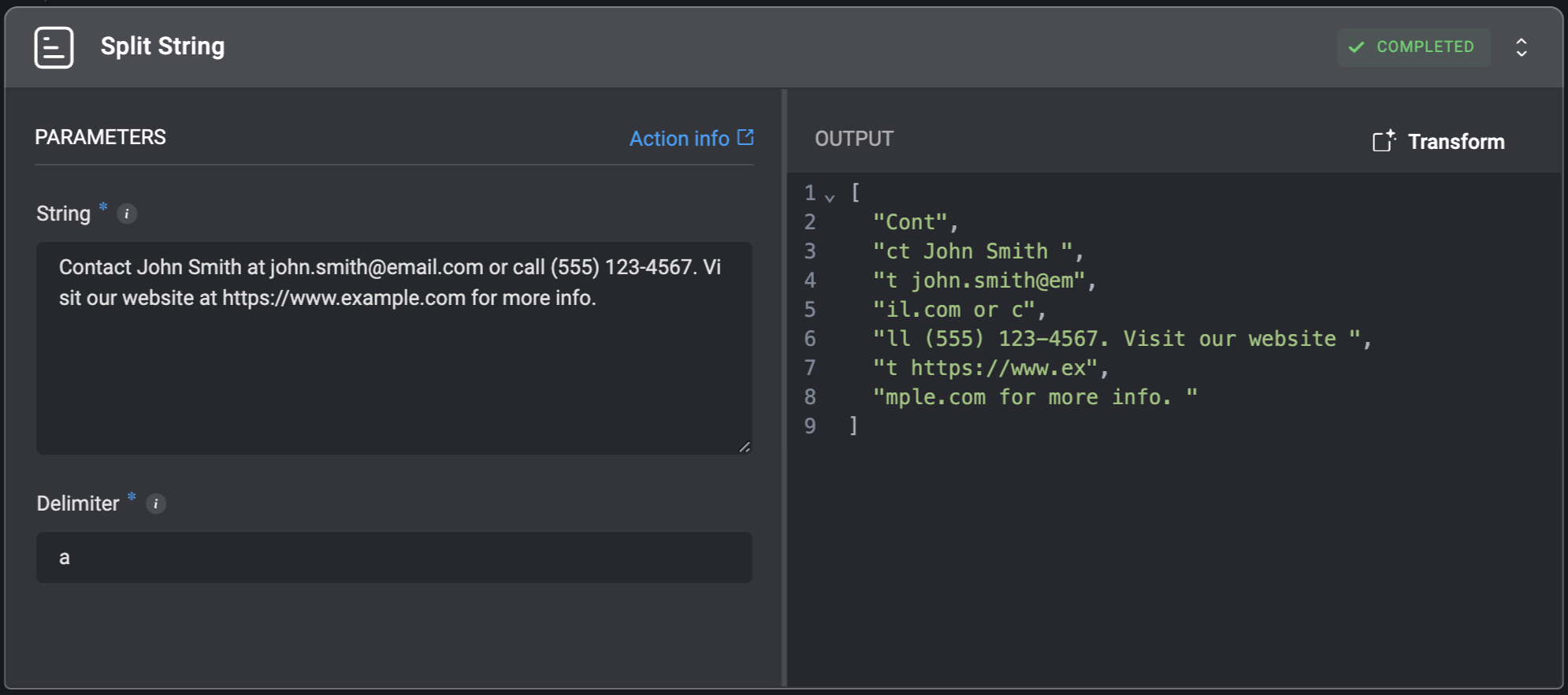
Trim Spaces
Removes all leading and trailing whitespaces from a given string.| Parameter | Description |
|---|---|
| String | The string that needs to be trimmed. |
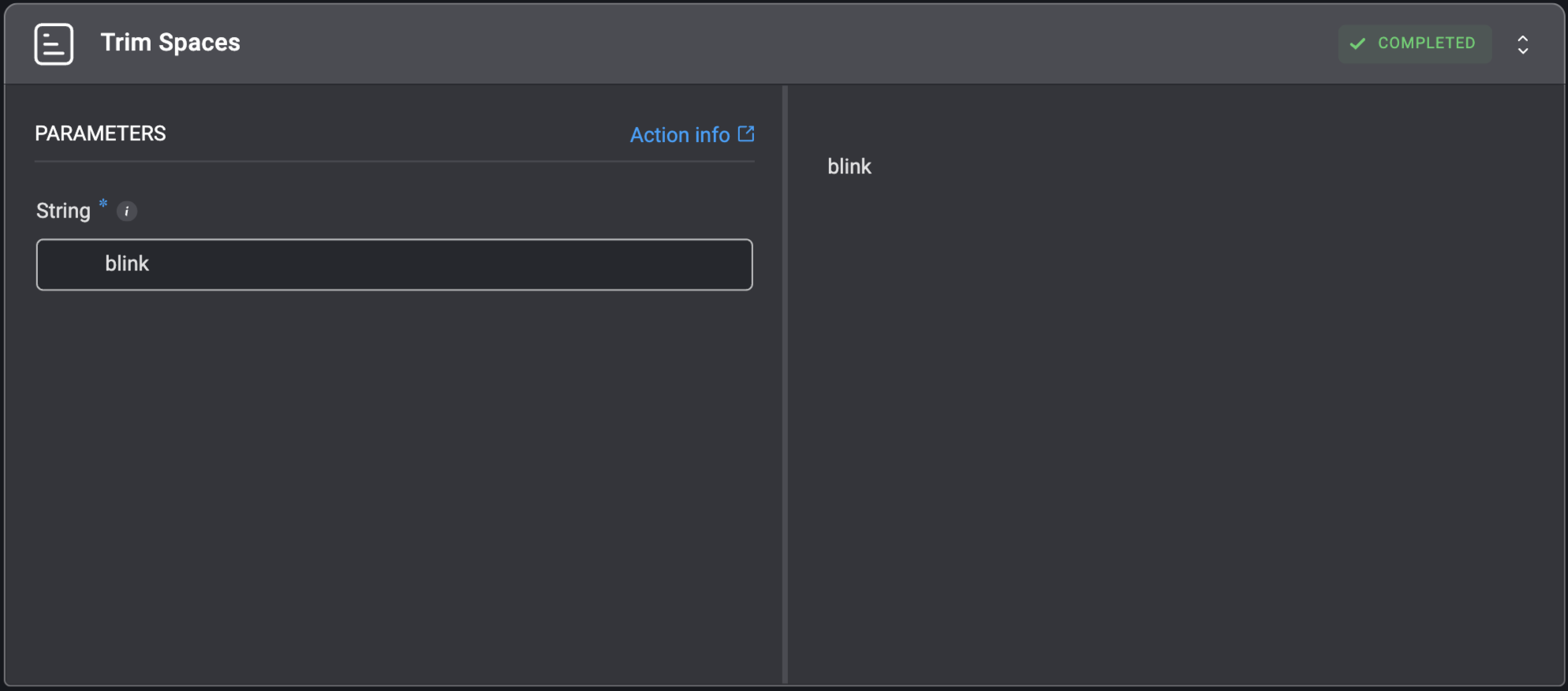
Trim String
Shorten a string from either or both sides, using optionalStart and End indexes. This action is based on Python’s array slicing, where the start index is included and the end index is excluded.
For example, using the string blinkops and the input indexes 0 and -3, the output will be: blink. The same as if the End index was 5.
Additional options:
- Use only
Startto trim from the beginning:Start: 2→inkops - Use only
Endto trim from the end:End: 5→blink - Leave both empty to get the full string
| Parameter | Description |
|---|---|
| String | The string that needs to be trimmed. |
| Start Index | The index of the first character you want to include in the slice. The string will be trimmed from this index (inclusive). Note: The first character’s index is 0. |
| End Index | The index of the first character you want to exclude from the slice. The string will be trimmed to this index (exclusive). Note: The last character’s index is -1 or the length of the string. |
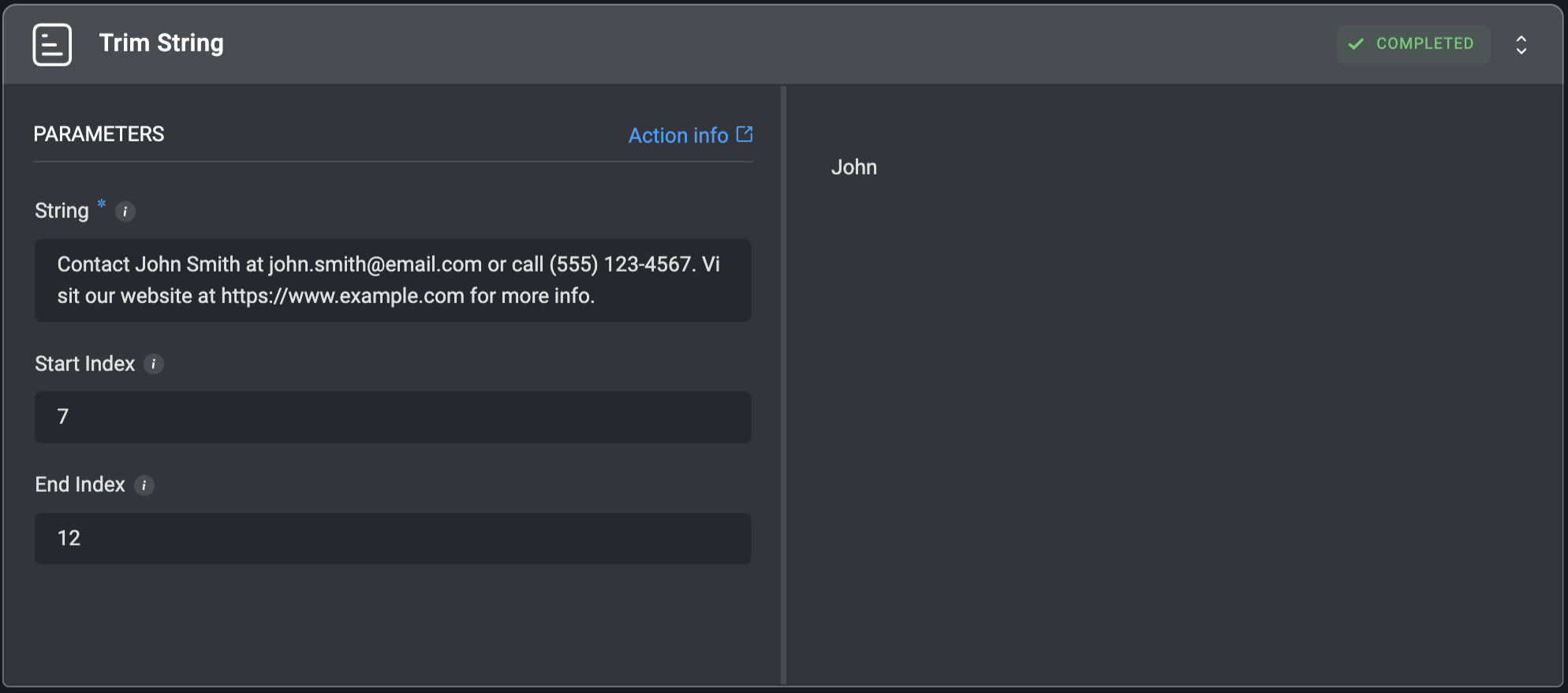
Truncate String
Shortens a given string to a limited number of characters.| Parameter | Description |
|---|---|
| String | The string that will be shortened. |
| Limit | The amount of characters the string will be limited to. For example: For the string - Hello World and the limit 8, the returned value will be: Hello WoNote: You can truncate the string from the end using a Negative Limit. For instance: the limit -2 will remove the last 2 characters. |
